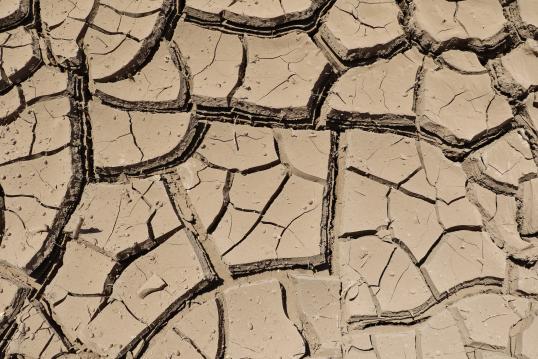Archived content
This website is no longer being updated. The content may be out-of-date and should be consulted for past reference only.
To find information about the College of Commissioners for the term 2024-2029, go to the Commission’s main website
This website is no longer being updated. The content may be out-of-date and should be consulted for past reference only.
Today, the world celebrates International Earth Day under the theme Restore our Earth. Five years ago, on this very same day, the Paris Agreement was officially open for signature and it entered into force on 4 November 2016. Still five years ago, nobody could have predicted the outbreak of the Covid-19 pandemic or imagined the human costs of this virus.
The pandemic has exacerbated pre-existing fragilities and deepened inequalities. According to the United Nations, almost 235 million people – 1 in every 33 people worldwide - will need humanitarian assistance in 2021. At the same time, recent progress towards the UN’s Sustainable Development Goals has also been curtailed, with more people entering extreme poverty this year than at any time in recent history. Many of these in need will be because of the effects of climate change.
Amid these humanitarian and development crises, it may be easy to forget about the urgency of the climate and ecological crisis. The endless headlines about extreme weather events and natural disasters can be as numbing as the endless warning messages from scientists. The climate crisis is often presented as urgent, but we also know that the worst impacts are yet to come. Moreover, as human beings we struggle to expand our emotional bonds towards people distant in space and time. This requires effort and intention. However, now, as we take the first steps on the path to recovery, mitigating and adapting to climate change and protecting biodiversity has never been more important.
In view of this, and on this day dedicated to our planet, I wish to share one important message: let us use this crisis as an opportunity to reset, restore and thrive. Let us use this moment to weed-out hesitations, remove all doubts and roll-up our sleeves to scale-up climate action. Let us use this unique occasion to forge a sustainable and resilient recovery and build back better, both at home and around the world.
Last month, together with High Representative Borrell, I presented a new Communication on EU humanitarian aid to take stock of the challenges and impacts of the Covid-19 pandemic and provide a new outlook for the EU’s global aid delivery. Through this Communication, we also wanted to place a stronger emphasis on climate change and environmental degradation as we know that the climate crisis acts as a threat multiplier in contexts already affected by conflicts, food insecurity and poverty.
Taking into account the impacts of climate change and environmental degradation is key to assess risks and vulnerabilities, to strengthen preparedness and act before the next disaster strikes. Preparedness and anticipatory action also offer an opportunity to use limited funds and resources more effectively. As stressed by the World Bank, investing 1 dollar in prevention may save 7 dollars spent after a catastrophic event strikes. Despite this clear economic case, the situation in practice is far different. The IFRC World Disasters Report explains that where disaster risks linked to climate change are the highest, the financial means to address these risks is not sufficient. We need to significantly increase the share of climate funds dedicated to enhancing resilience and adaptation in the most disaster-prone countries.
From my experience, I know that preparedness is an important piece of a larger puzzle, which is ensuring climate and environmental resilience while at the same time addressing the root causes of humanitarian needs. For this objective, a collective approach is fundamental. Indeed, the scope of the systemic change ahead requires transformative and ambitious multi-partners coalitions. This means working with development, peace, climate and environmental actors to provide solutions that address both immediate and long-term needs.
Finally, I also want EU humanitarian aid to be part of the solution to climate change. As humanitarian actors and donors, we must do our best to address the consequences of climate change and continue to protect the environment from degradation. In this light, we will continue to work on greening the EU’s humanitarian aid, collaborating with partners and experts to explore innovative and efficient ways to reduce the environmental footprint of humanitarian operations. As the first responders in emergency situations, we have the opportunity to plant the seeds for a resilient and sustainable recovery. And provide supports that can be easily picked-up and continued by development and environmental partners.
Later this year, the world’s leaders will convene in Glasgow for the UN Climate Change Conference. It will provide an important occasion for governments and states to renew their commitments to climate action. In the lead up to this meeting, I will urge all humanitarian donors, partners and actors to enhance their ambitions and implement bolder plans to address the consequences of climate change. At the same time, I will work with our Member States to ensure that the future envisaged by the 2030 Agenda and the Paris Agreement becomes a reality.
Details
- Publication date
- 22 April 2021
- Author
- Directorate-General for Communication

